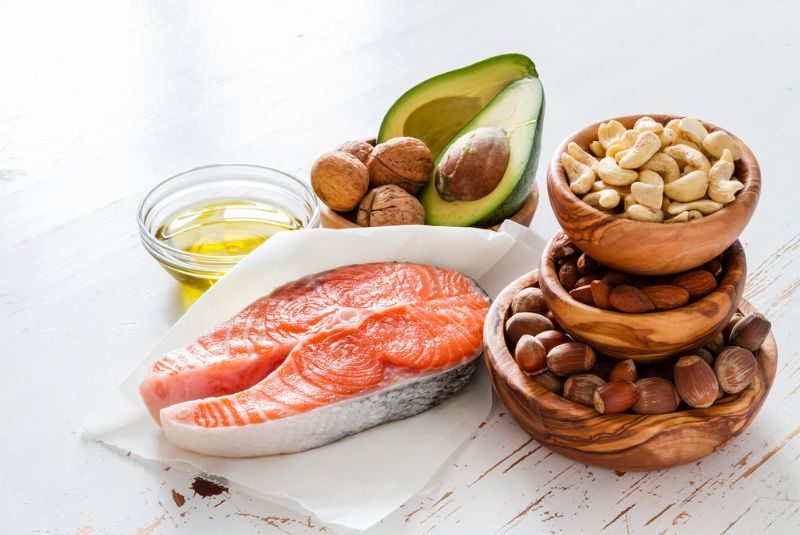One of the most common diet mistakes people make is setting unrealistic goals that are difficult to achieve or maintain. It’s tempting to aim for rapid weight loss or dramatic changes in a short period, but this often leads to frustration and disappointment when results don’t match expectations. Instead, set achievable, gradual goals, such as losing 1-2 pounds per week or incorporating more fruits and vegetables into your meals. Sustainable weight loss and healthier eating habits take time. By focusing on long-term success rather than quick fixes, you’ll avoid the common trap of giving up when progress feels slow.
Skipping Meals or Severely Restricting Calories
Another frequent diet mistake is skipping meals or cutting calories too drastically. While it may seem like an effective way to lose weight quickly, this approach often backfires. When you skip meals or significantly reduce your calorie intake, your body enters starvation mode, slowing down your metabolism and making it harder to burn fat. Additionally, extreme hunger can lead to overeating later in the day, causing spikes in blood sugar and energy levels. Instead of skipping meals, focus on eating balanced, nutritious meals throughout the day to keep your metabolism steady and prevent binge eating.
Relying on Processed “Diet” Foods
Many people turn to processed “diet” foods that are marketed as low-calorie, low-fat, or sugar-free, believing these products will help them lose weight. However, these items are often loaded with artificial sweeteners, unhealthy fats, and preservatives that may negatively impact your health. Additionally, they may not provide the nutrients your body needs, leaving you feeling unsatisfied and more likely to overeat. A better approach is to focus on whole, unprocessed foods like fruits, vegetables, lean proteins, and whole grains. These nutrient-dense foods will keep you fuller for longer and provide the vitamins and minerals necessary for overall well-being.
Not Eating Enough Protein
Protein is essential for building and repairing tissues, and it also helps to keep you full and satisfied. A common diet mistake is not including enough protein in your meals, which can lead to increased hunger and cravings throughout the day. Ensuring you have a good source of lean protein—such as chicken, fish, tofu, or legumes—at every meal can help stabilize your blood sugar and reduce the temptation to snack on unhealthy foods. Protein also supports muscle maintenance, which is particularly important when you're losing weight or building strength.
Ignoring Portion Control
Even if you’re eating healthy foods, ignoring portion sizes can derail your diet. It’s easy to overeat, even when consuming nutritious meals, which can lead to weight gain or prevent you from losing weight. Paying attention to portion control is key to maintaining a balanced diet and achieving your health goals. Use smaller plates, measure your food when possible, and listen to your body’s hunger cues. Eating slowly and mindfully helps you recognize when you’re full, reducing the likelihood of overeating. Portion control is a simple but effective way to manage calorie intake without feeling deprived.
Neglecting Healthy Fats
Many people mistakenly believe that all fats are bad and should be avoided when dieting. However, healthy fats, such as those found in avocados, nuts, seeds, olive oil, and fatty fish, are essential for overall health and can aid in weight management. Healthy fats help you feel full and satisfied, reduce inflammation, and support brain and heart health. The key is to choose unsaturated fats and avoid trans fats or excessive saturated fats found in processed foods. Incorporating moderate amounts of healthy fats into your diet can improve satiety and make your meals more satisfying.

Drinking Too Many Liquid Calories
It’s easy to overlook the number of calories you consume through beverages, but sugary drinks, specialty coffees, and even fruit juices can add up quickly and derail your diet efforts. These drinks often contain a lot of sugar and empty calories that don’t contribute to satiety, meaning you’re likely to consume more calories overall without feeling full. To avoid this common diet mistake, choose water, herbal teas, or black coffee as your main beverages. If you enjoy flavored drinks, try infusing water with fruit or drinking sparkling water with a splash of citrus for a refreshing, low-calorie alternative.
Focusing Solely on the Scale
While tracking your weight is a common way to measure diet success, relying solely on the scale can lead to frustration and poor decision-making. Weight naturally fluctuates due to factors like water retention, hormones, and muscle mass, so the number on the scale doesn’t always reflect your true progress. Instead of focusing solely on your weight, pay attention to other indicators of health, such as how your clothes fit, your energy levels, or improvements in physical performance. By shifting your focus from the scale to overall well-being, you’ll be more likely to stay motivated and committed to your diet.
Not Planning Ahead
Failing to plan meals and snacks is a common mistake that can lead to poor food choices, especially when you're busy or hungry. Without a plan, it’s easy to reach for convenient, unhealthy options that may not align with your diet goals. To avoid this, take time each week to plan your meals and snacks, and prep food in advance when possible. Having healthy options ready to go makes it easier to stick to your diet, even when you’re short on time or tempted by less nutritious choices. Meal planning also helps with portion control and can reduce the stress of making food decisions on the fly.
Cutting Out Entire Food Groups
Some diet plans recommend eliminating entire food groups, such as carbohydrates or fats, in an effort to lose weight quickly. While this may lead to short-term results, cutting out essential nutrients can result in imbalanced eating and long-term health problems. Carbohydrates, fats, and proteins all play important roles in a balanced diet, and removing any one of them can cause nutritional deficiencies. Instead of eliminating entire food groups, focus on eating a balanced diet that includes a variety of whole, nutrient-dense foods. Moderation, rather than restriction, is key to sustainable weight loss and overall health.
Not Drinking Enough Water
Staying hydrated is crucial for overall health and weight management, but many people overlook the importance of drinking enough water throughout the day. Dehydration can be mistaken for hunger, leading to overeating. Additionally, water helps with digestion, flushes out toxins, and keeps your metabolism functioning efficiently. Make sure to drink water regularly throughout the day, especially before meals, to help with portion control and reduce unnecessary snacking. Carry a water bottle with you as a reminder to stay hydrated, and aim for at least 8 cups (64 ounces) of water daily, or more depending on your activity level.
Avoiding common diet mistakes is crucial for long-term success in weight management and healthy eating. By setting realistic goals, focusing on balanced nutrition, planning meals, and being mindful of portion sizes, you can achieve lasting results without feeling deprived or frustrated. Prioritize whole, nutrient-dense foods, stay hydrated, and avoid extreme restrictions or crash diets. By adopting sustainable habits and avoiding these common pitfalls, you’ll be better equipped to reach your health and wellness goals while enjoying a more balanced, satisfying approach to eating.




